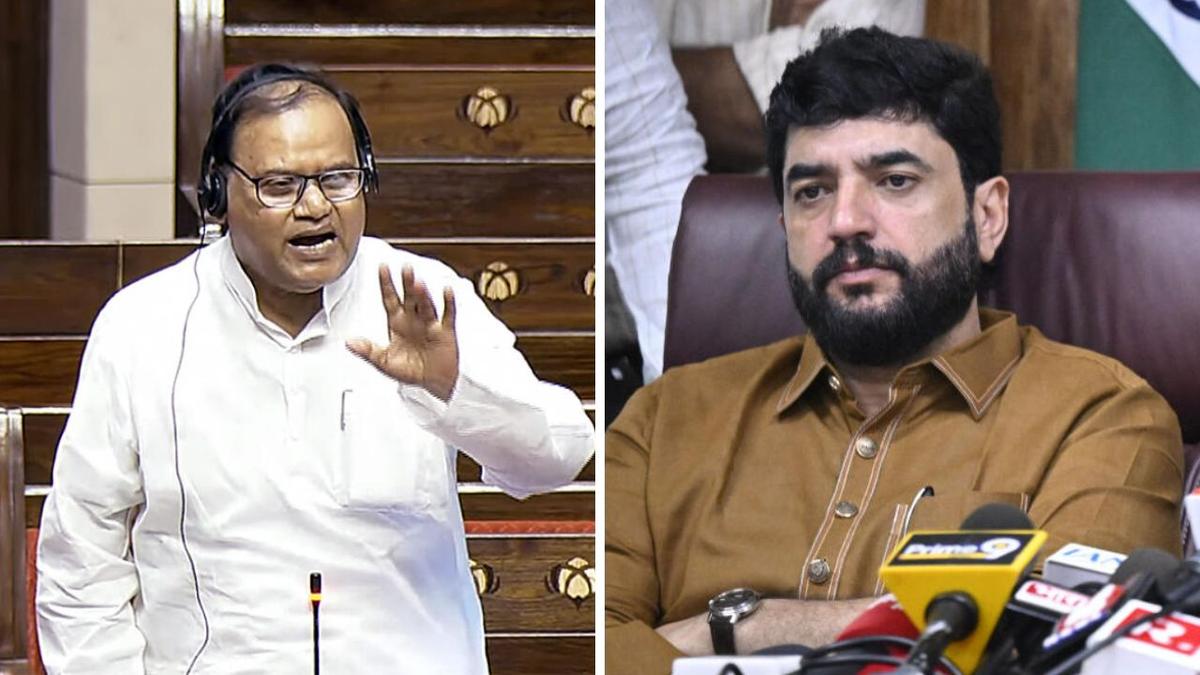Ahead of the Plastics Treaty Negotiations, which began in Geneva on Tuesday (August 5, 2025), Dravida Munetra Kazhagam (DMK) Member of Parliament Thamizhachi Thangapandian submitted a memorandum to Environment Minister Bhupendra Yadav, on Monday, exhorting that India play a “lead role” in advocating a “robust, time bound and enforceable agreement” to address the full life cycle of plastic.
Ms. Thangapandian expressed her position on behalf of the Interparliamentary Coalition to End Plastic Pollution (ICPP). This is a collective of Parliamentarians from about 30 countries who are pushing for stronger action from member states on addressing plastic pollution. Their position doesn’t necessarily converge with their countries’ current stance at the Plastics Treaty negotiations, formally called the International Negotiations Committee (INC 5.2) meeting.
Since 2022, when the United Nations Environment Assembly adopted a mandate to create the world’s first Plastics Treaty, 190 member-countries have been having regular meetings to evolve a comprehensive agreement, whose ultimate aim is to end humanity’s century-old dependence on plastic. This means reigning in plastic production, eliminating plastic waste and putting in measures to ensure that plastic, across its entire life-cycle, is suitably addressed.
While countries are all agreed in principle, there are sharp differences on the approach to this. Some countries insist on a cap on production, others are dead against it; others aver that improving plastic waste recycling is adequate; yet others say that developed countries must pay developing countries for the costs of transitioning to a non-plastic economy.
Despite five meetings since 2022, there has been no agreed document on the way forward. The 5th edition of talks at Busan, South Korea, were expected to be conclusive but resulted in a complete stalemate requiring negotiations in Geneva, called International Negotiations Committee 5.2, which is officially expected to continue until the 14th of this month. A firm treaty will pave the way for the annual Conference of Parties (COP) talks, akin to the UN climate negotiations.
At the Busan talks, India expressed its inability to agree to production cuts. “India would like to state its inability to support any measures to regulate the production of primary plastic polymers as it has larger implications in respect of the right to development of Member States,” said Indian delegation leader Naresh Pal Gangwar of the Environment Ministry, at the plenary. “India has always been committed to the principle of consensus in decision-making in respect of substantive matters under multilateral environmental agreements. This principle reiterates collective decision-making and reflects shared responsibilities and commitment.”
Ms. Thangapandian’s letter reflects a more ambitious proposition than India’s public position so far.
“The treaty must go beyond voluntary action and must include legally binding obligations that span the entire plastic life cycle from production and design to disposal...India must support the global call to reduce virgin plastic production. Over 16,000 chemicals are found in plastic products, of which at least 4,200 are known to be hazardous...India should press for a global ban on chemicals of concern,” Ms. Thangapandian, who represents the South Chennai constituency in Parliament, said in her letter. “In this endeavour, Tamil Nadu’s pioneering ban on single-use plastics and its Dravidian-Model-based community waste-management systems offer powerful domestic success stories that India can proudly project as models during the Geneva negotiations.”



.png)
.png)
.png)
















 14 hours ago
2
14 hours ago
2









 English (US) ·
English (US) ·